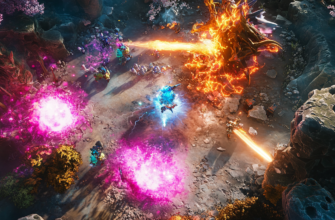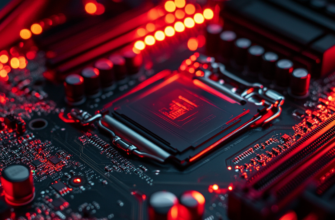- Understanding why esports players prefer mechanical keyboards
- Key concepts to understand before diving in
- The main reasons esports players choose mechanical keyboards
- 1. Faster response times
- Example:
- 2. Durability and longevity
- Practical tip:
- 3. Customizability options
- Pro tip:
- 4. N-key rollover and anti-ghosting
- Practical tip:
- 5. Tactile feedback for better accuracy
- Example:
- 6. Comfortable typing and ergonomic benefits
- Practical tip:
- Conclusion: Should you switch to a mechanical keyboard?
- Next steps
Understanding why esports players prefer mechanical keyboards
As a gamer, you might have noticed a lot of pro esports players using mechanical keyboards. You hear that satisfying click-clack in the background of streams, and maybe you’re wondering: what is it about mechanical keyboards that makes them so popular in esports? Is it just about the sound, or is there something deeper behind the choice? In this blog post, I’m gonna break it down for you, answering why mechanical keyboards have become the go-to choice for top-tier competitive gamers.
Key concepts to understand before diving in
Before we get into the nuts and bolts of why esports pros are all about mechanical keyboards, let’s define a few key terms to ensure we’re on the same page.
- Membrane keyboard: A type of keyboard in which a layer of pressure pads underneath the keys registers your key presses. They’re inexpensive and most often used on standard office or home keyboards.
- Mechanical keyboard: A keyboard where each individual key has a mechanical switch underneath it. When you press a key, that switch is what sends the signal to your computer.
- Actuation point: The point at which a key press registers the signal to the computer. On mechanical keyboards, this point is tactile and can provide faster reaction times.
- Switch type: Refers to the mechanical switches inside a mechanical keyboard. Some common types are Cherry MX Red, Blue, and Brown, each known for different feels, sound, and actuation force.
The main reasons esports players choose mechanical keyboards
If you’re serious about upping your game and you’ve observed professional gamers, you’ve likely spotted them favoring mechanical keyboards over standard membrane ones. Here are the reasons why esports pros prefer mechanical keyboards:
1. Faster response times
In esports, milliseconds can make the difference between victory and defeat. Mechanical keyboards allow for quicker response times because the actuation point of the switch is reached faster than on a membrane keyboard. Mechanical switches send a signal as soon as they’re pressed, whereas membrane keyboards require the key to be fully bottomed out.
This becomes particularly useful in fast-paced games like CS:GO or Overwatch, where reaction times matter. A mechanical keyboard gives pros that little competitive advantage because they’re able to react more quickly.
Example:
In FPS games like Valorant, a fraction of a second is crucial to land that headshot. A lesser actuation distance means esports players can get their abilities out or aim down sights faster. Every millisecond saved counts!
2. Durability and longevity
Professional gamers hammer away on their keyboards for hours every day. Membrane keyboards are simply not built to endure this kind of abuse. Keyboards used by esports players need to last a long time under tough conditions, and mechanical ones shine here. The mechanical switches in these keyboards are designed to withstand at least 50-100 million key presses—far more than the average membrane keyboard.
Considering that esports players typically play for several hours a day, practicing and competing, a durable keyboard not only becomes a necessity but an investment into their careers.
Practical tip:
If you’re the kind of gamer who plays daily and wants your setup to last, consider a mechanical keyboard with higher durability ratings like Cherry MX or Razer switches. These can last you many years even with heavy use.
3. Customizability options
Let’s face it—esports players are fanatics when it comes to optimizing their setups. Mechanical keyboards offer a range of customization options, from keycaps to switches, and even RGB lighting. This allows players to tailor their keyboard experience to their unique playstyle, which can improve comfort and performance.
Some players prefer the tactile feedback of Cherry MX Blue switches, while others go for the smooth, linear feel of Cherry MX Red switches. There are even silent switches for those who don’t want the click-clack. This level of customization is simply not possible with membrane keyboards.
Pro tip:
If you enjoy tweaking and personalizing your setup, you’ll love mechanical keyboards. You can swap out key switches based on specific games or even buy custom keycaps to improve both your accuracy and aesthetic appeal. Most esports players opt for lightweight switches like MX Reds for FPS games but might switch to heavier ones for strategy games.
4. N-key rollover and anti-ghosting
Another key feature that sets mechanical keyboards apart is their support for N-key rollover and anti-ghosting. N-key rollover means you can press multiple keys at the same time without any of them not registering. This is essential for games that require complex key combinations, like MOBAs (League of Legends) or MMORPGs (World of Warcraft).
Anti-ghosting ensures that when multiple keys are pressed at once, unwanted keypresses (ghost signals) don’t get registered. In fast-paced games, you don’t want a 3rd or 4th unintended keypress to ruin a perfectly executed combo.
Practical tip:
If you’re playing a game that requires a lot of simultaneous keypresses, like executing complicated combos in fighting games or executing macros as you would in MMOs, a keyboard with n-key rollover will give you a smoother experience.
5. Tactile feedback for better accuracy
One of the best things about mechanical keyboards is the tactile feedback. With membrane keyboards, you’re often hitting keys without any real feel for when they’ve activated. Not so with mechanical keyboards. When you press a key on a mechanical keyboard, especially ones with tactile switches, you get instant feedback (either through a click or a bump) to let you know the key has actuated.
This is a huge deal in esports where precision is key. Whether it’s performing a complex sequence of keypresses in a MOBA or accurately timing your movement in an FPS game, tactile feedback improves the overall gaming experience by giving players the confidence that each press has been registered.
Example:
In games like Starcraft 2 or Dota 2, where fast actions per minute (APM) matter, esports players need to know that each keypress has hit the mark. Tactile feedback gives them an assurance that they’ve made the maneuver without looking at the keyboard.
6. Comfortable typing and ergonomic benefits
Esports players can spend hours practicing every single day, and mechanical keyboards tend to be much more comfortable for long gaming sessions than membrane ones. The mechanical switches offer a consistent force curve, meaning every press feels the same, which reduces finger fatigue.
Additionally, the key travel and tactile feedback—especially on keyboards with wrist rests—help maintain a more natural position of the hands. This leads to fewer issues like repetitive strain injury (RSI) or finger strain, allowing players to practice longer and at a higher level of comfort.
Practical tip:
If you find yourself getting sore fingers from extended gaming, try a mechanical keyboard with soft-touch switches or linear switches like MX Reds. Also, consider getting a wrist rest to further prevent strain.
Conclusion: Should you switch to a mechanical keyboard?
If you’re a serious gamer or striving to become one, making the switch to a mechanical keyboard is an easy recommendation. Esports players love them for good reason. They provide faster response times, a more satisfying gaming experience via tactile feedback, and a high degree of durability. Plus, the customization options they offer allow you to personalize your gaming setup according to your preferences.
So, should you invest in a mechanical keyboard if you’re gunning for esports-level performance or just want to step up your gaming experience? Absolutely! Pro players don’t just use them for the cool factor—they use them because these keyboards give them real, measurable advantages.
Next steps
- Research different switch types to find out which one suits your playstyle the best. I’d recommend starting with Cherry MX Blue or Red.
- If you are more of a casual gamer but still want quality, go for mechanical keyboards with silent switches to avoid noise complaints while gaming.
- Look into brands like Corsair, Razer, and Logitech, which offer highly-rated mechanical keyboards for esports players.
Got a favorite mechanical keyboard or a switch type you swear by? Let me know—I’d love to hear your thoughts and experiences in the comments.

















